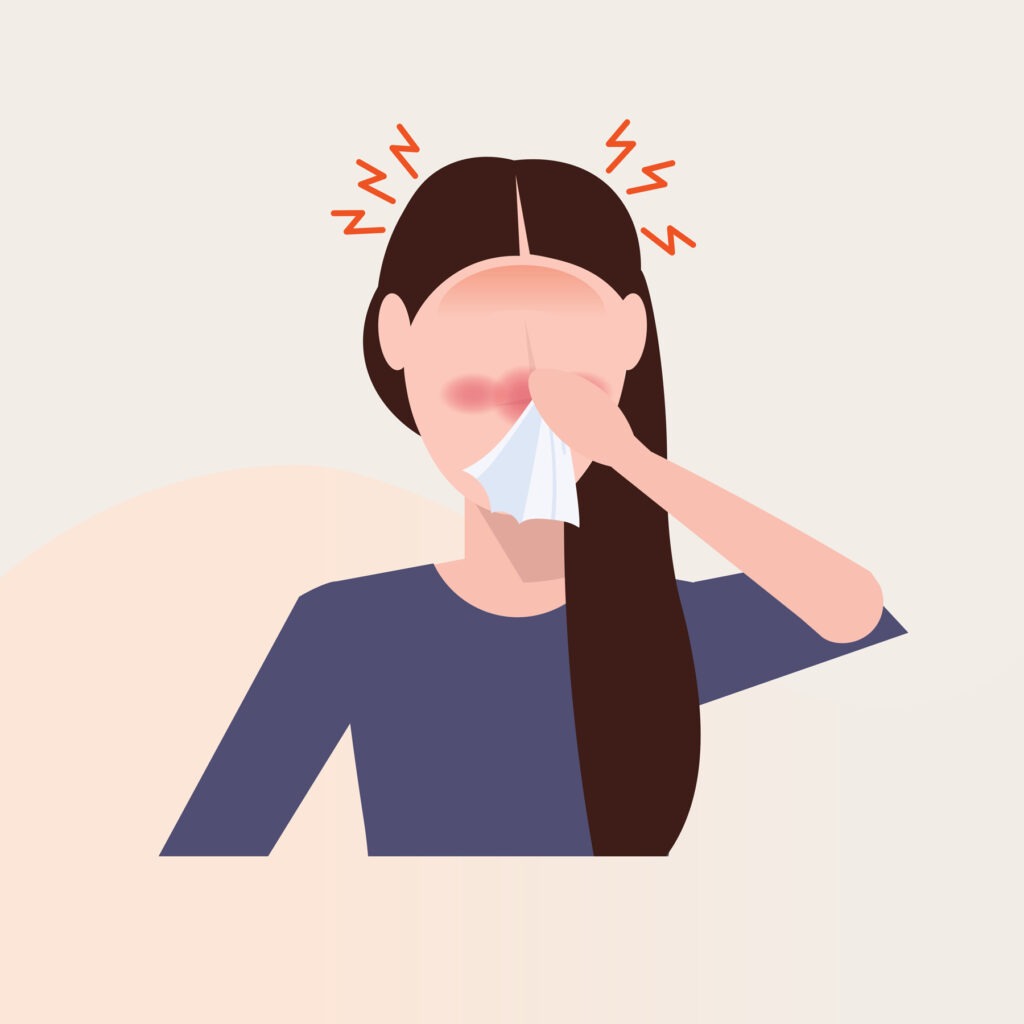Does springtime mean itchy eyes for you?

While many of us welcome spring and the warm weather that comes, others dread it. That’s because they know they are in for months of red, sore, watery and itchy eyes.
Hay fever is an allergy caused by pollen that affects many people to varying degrees. Its effect on the eyes gets especially annoying for contact and glasses wearers. Itchiness gets in the way of corrective eye wear and too much itching leads to soreness and unattractive red eyes. With an estimated one in seven Australians effected by hayfever each wear, we know that it is no fun at all!

What is hay fever caused by?
There are a number of active substances that can cause allergic conjunctivitis, including:
- Animal fur
- Mould
- Dust mites
- Makeup
- Eye drops.
However, pollen is the main culprit. The cause of those red, swollen eyes is an organic compound known as histamine, which plays a major role in allergic eye reactions. It is produced as part of a local immune response to trigger inflammation, causing your blood vessels to dilate. The blood irritates the nerve endings and causes your eyes to water.
When you’re exposed to a substance that you’re allergic to, your immune system attempts to protect the body and starts a chain reaction that causes cells to release histamine into the bloodstream. The histamine then acts on a person’s eyes, so they become itchy, red, puffy and watery. Antihistamines are designed to inhibit histamines.
How to avoid hay fever?
It’s difficult to avoid allergens even if you stay indoors. However, there are ways to reduce your suffering:
- Clean the house: Vacuum, dust and change your sheets and pillowcases on a regular basis
- Close your windows
- Use an indoor air purifier
- Cold packs are very useful for symptoms
- Create a ‘barrier’: Dab a bit of petroleum jelly on the inside of your nostril. That way pollen won’t be able to attach itself inside your nose.
- Get fit: Research shows it reduces the symptoms of hay fever.
- Wash your hair at night: Pollen is nasty – it can stick to your hair then rub off onto your pillow.
- Avoid the peak hour for pollen: Between 8–10am and 5–7pm is when it’s at its worst. If you’re a commuter, wear sunglasses and consider wearing a mask.
- Don’t rub your eyes – it makes them puffier and spreads the allergen which increases the problem
- Avoid putting water in your eyes – that just spreads the allergens around the eye
What’s the best way to treat eyes affected by hayfever?
Your first stop is a trip to us or your local optometrist, who can discuss the following treatment options with you:
- Antihistamine eye drops
- Lubricating artificial tear drops can be useful for flushing out any allergens building up on the surface of the eye
- Anti-inflammatory eye drops used twice a day can help relieve your symptoms
- Oral antihistamines in tablets or capsule forms – your chemist can help you decide which is best for you.
Spring is a beautiful time of the year, don’t let hayfever come in the way of you enjoying it. Beckenham Optometrist has been operating in Avalon for 20 years now, dedicated to providing the best eye care and maintaining the health of your eyes we can help you look and feel your best. To book follow the link below or call us on 9918 0616. See Better, See us!







